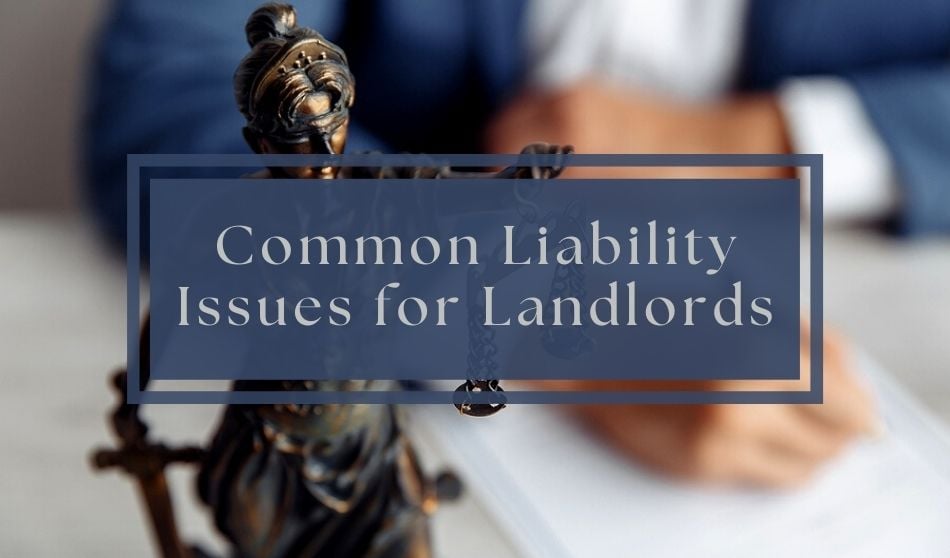As is the case with anyone who owns a property, a landlord will have some degree of liability for their rental units. If you aren’t careful, you may find yourself on the receiving end of an insurance claim. One of the biggest factors that establishes who the liable or criminal party is, is negligence. This is especially relevant when it comes to injuries, but is a factor in almost all common liability issues.
Criminal Activity
While not entirely the responsibility of the landlord, it is at least partly your responsibility to protect your tenants from criminal activity. This is especially true if crimes had occurred in the area before that the landlord was aware of, yet did not take the appropriate precautions. There have been cases where landlords have been sued by tenants for failing to take reasonable steps to protect them against crime.
Landlords are also liable if their tenants are the ones participating in criminal activity. Along with being sued for public nuisance, landlords can receive fines and criminal penalties for failing to protect their neighborhood. This is particularly relevant if the landlord was completely aware of their tenant’s actions. If criminal activity had previously occurred on the landlord’s property, then their liability would increase.
Breach of Habitability
To determine if there is a breach of habitability, look at the lease. Landlords are responsible for the structural elements of the rental unit and common areas. If situations such as a vermin or mold infestation occur and the lease stated that the landlord was responsible for preventing those situations, then they can be held liable if a tenant makes a claim. A landlord that doesn’t correctly look after their rental unit could also find themselves in a situation that leads to an injury for their tenants.
Injuries for Tenants
If one of your tenants gets injured on your property, there is the possibility of liability for that injury. However, to be held responsible for it, your negligence in maintaining the property must have caused the injury. According to Nolo, there are several details that need to be proven in order to make the landlord liable.
- It needs to be proven that it was the landlord’s responsibility to maintain the section of the property that caused the accident.
- The landlord failed to take the reasonable steps needed to avert the accident.
- That fixing the problem or giving the tenants adequate warnings would not have been unreasonably difficult or expensive.
- The probable conclusion of not fixing the problem was a serious injury.
- The landlord’s negligence caused the tenant’s accident.
- The tenant was genuinely hurt.
If an injured tenant can prove all of the above, then they can file a personal injury lawsuit or a claim against the landlord’s insurance. The claim can include medical bills, lost earnings, pain, other physical suffering, permanent physical disability, and disfigurement. Tenants can also sue for damage to personal property that results from unsafe conditions or faulty maintenance.
Dogs
Dogs can expose landlords to liability. Fortunately, unless the landlord knew that the dog was dangerous, then they are not generally liable. But, if they knew that the dog had bitten someone before and could have had the dog removed, then they would be responsible. There are terms that landlords can add to the lease to help prevent this.
- Meet dogs in person to gauge their temperament and/ or use Petscreening services to check for past pet history
- Require the dog to be leashed when not in the rental unit or a designated pet area.
- Require renters insurance with liability coverage.
- Require the dog to be removed or the lease to be terminated if it becomes a hazard.
- Make sure your pet policy reflects allowable pet breeds as covered by your insurance policy.
Being Proactive
Now that you know some of the common liabilities for landlords, it is time to take preventative measures to keep your property as safe as possible. The most crucial step with any of these issues is having landlord insurance and being aware of your legal responsibilities.
Learn more: Do You Have the Right Insurance for Your Rental Property? | Landlord Insurance vs. Homeowners Insurance
Be aware of the situation in your neighborhood and take the appropriate precautions to keep your tenants safe. This can include a new security system, new or improved locks, and outdoor lighting. To prevent potential criminals from becoming your tenants, be sure to stay up to date on tenant screening and follow up on their references. Prohibiting drug dealing and criminal activity in the lease can work out in your benefit if it does become an issue.
To prevent injuries and a breach of habitability from becoming an issue, stay up to date on all of your maintenance. If something breaks, repair it immediately. Try to spot potential accidents before they ever become an issue. Work to protect both yourself and your tenants.
Related Reading for You:
- What Every Landlord Should Know About Pet Breeds
- Can you require tenants to have renters insurance?
- 5 Slip Prevention Tips for Your Rental Property: Infographic
